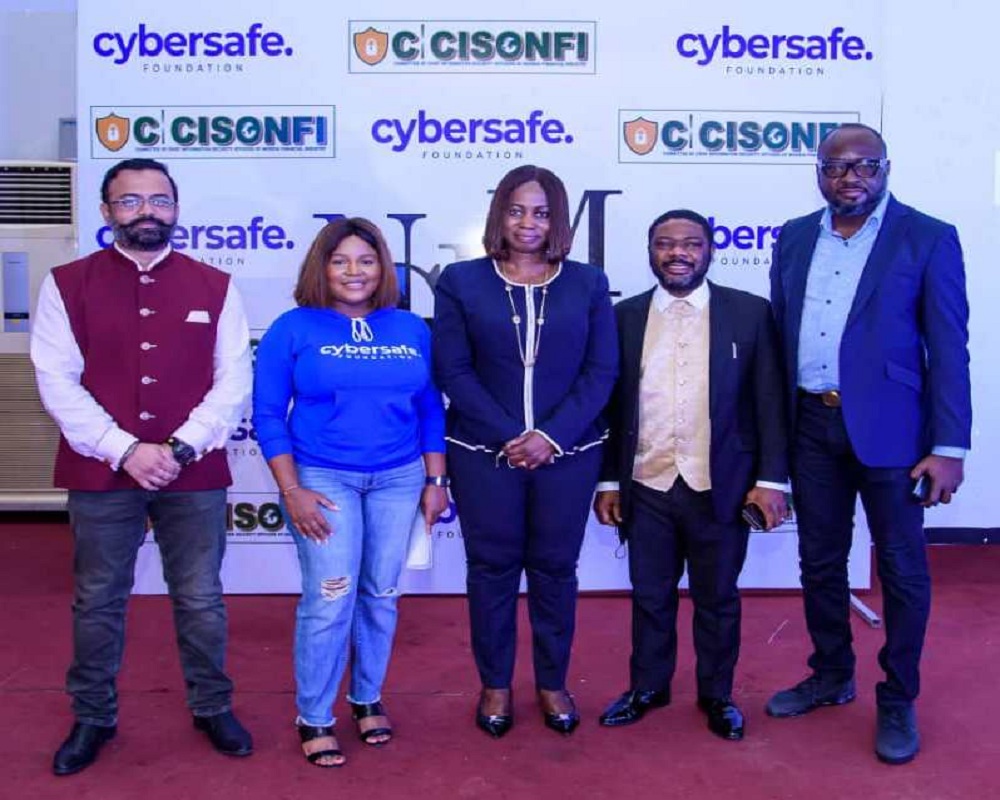CyberSafe Foundation, Africa’s leading non-Governmental organization in the Digital Development domain, in collaboration with the Committee of Chief Information Security Officer of Nigerian Financial Institutions (CCISONFI), recently took Nigerian technology journalists to the classroom in Lagos, exposing them to digital safety and how to explore the financial opportunities in the digital space.
Journalists under the auspices of Nigeria Information Technology Reporters’ Association (NITRA) were at the training, exposed to emerging cybersecurity trends, hazards of cyber threats and assaults, and how to avoid the phenomenon which could become the next pandemic.
The training which was part of the #NoGoFallMaga campaign by the group was aimed at complementing the Central Bank of Nigeria (CBN)’s efforts towards building a cybersafe financial industry.
Speakers at the one-day training emphasised the need for collaboration between CIOs and the media, particularly members of the Nigeria Information Technology Reporters’ Association (NITRA), so as to curb the growing cybersecurity threats in society.
Igboa Abumere, the CCISONFI chairman, in his opening speech, noted that awareness is key in combating cyber threats and relevant to complementing existing regulations.
Abumere who doubles as the chief information security Officer, Stanbic IBTC Bank, said, “We are highly regulated but we still need to know how to protect ourselves.”
Favour Femi- Oyewole, the Group Chief Information Security Officer, Access Bank Plc., in her speech, warned that cyberattacks would be the next global challenge post-Covid pandemic, stressing that it is critical for businesses and people to begin building resilience and backups for their systems, platforms, and apps.
Femi- Oyewole highlighted the dangers of public, private organisations and individuals’ lack of interest to build barriers and firewalls to protect their platforms, digital tools, and applications from cyberattacks and urged organisations to check their ability to bounce back should they suffer an attack.
“If anything happens to you, how quickly can you bounce back? Have you checked your resilience, do you have a backup”, she asked.
She advised that integrity, confidentiality, and availability of a good cyber security system must be put in place by organisations as part of their cybersecurity strategies.
“You need to put necessary measures in place to quickly detect any breaches and remedy. Vulnerability is any flaw or weakness that can be exploited. There should be countermeasures in place to prevent, minimize or report any breaches on time so that corrective measures can be taken up immediately,” she said.
The Access Bank Group CIO said that human beings remain the most essential and first line of defence against cyber-attacks, and therefore, should ensure that their systems and media platforms are not left unprotected.
Bharat Soni, the Chief Information and Security Officer, GTCO Plc., who spoke next, explained that organisations should work to mitigate cyber security challenges such as insider fraud, business email compromises, ransomware, and phishing.
Cyber threats and assaults according to him have increased due to technological advancements, social-economic considerations, and insufficient criminal justice, and listed the most recent cyber security breaches as Twitter compromise 2020, Colonial Ransomware Attack 2021, and Cyber Breach of an undisclosed Nigerian Bank 2021.
He said that social media has become a challenge to reporting cyber incidents as many people do not check the authenticity of the news posted on these social media platforms, adding that this is why media collaboration is critical to cybersecurity awareness.
In his own contribution, Dr. Peter Adewale Obadare, the Chief Visionary Officer/Co-Founder, Digital Encode Limited, urged technology journalists to equip themselves with relevant knowledge in the cybersecurity space, noting that this will empower the journalists to inform the public with accurate and factual cybersecurity information in their reportage.
While insisting that journalism is an esteemed profession that promotes the truth, Obadare warned that some leading journalists and news reporters possess and convey extremely sensitive information that could create huge impacts across cyberspace, especially when they are unverified claims.
He admitted that journalists are also never safe from being attacked by malicious bodies looking to either steal their sensitive information or fake their stories and sites.
Confidence Staveley, founder, Cybersafe Foundation advised media practitioners to protect themselves against cyberattacks by following best practices and taking all the necessary precautions before exploring the vast space of the internet for their work.
She said that journalists can secure safe passage to their information channels, without fearing the unexpected infiltration attack by using some of the tips she listed including the use of strong passwords, VPN, Phishing identification, Smishing, Vishing, etc.
The event had journalists drawn from different media platforms including electronic, online and print in attendance.

